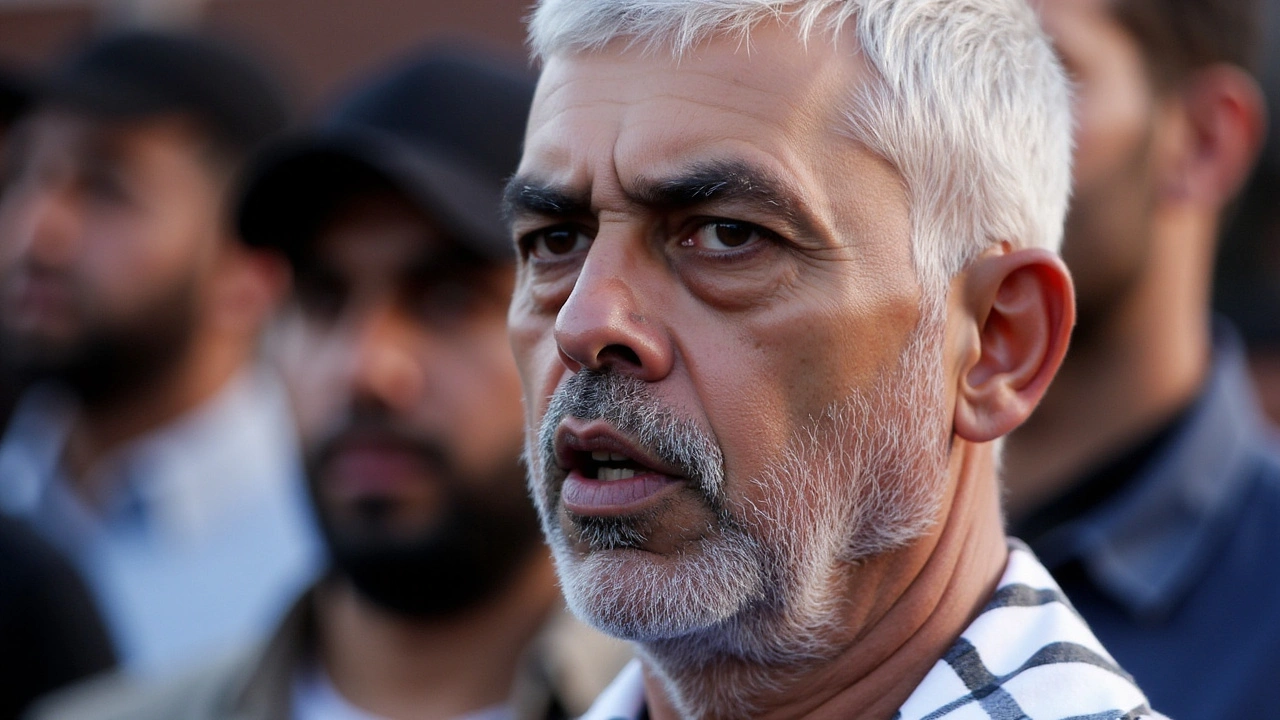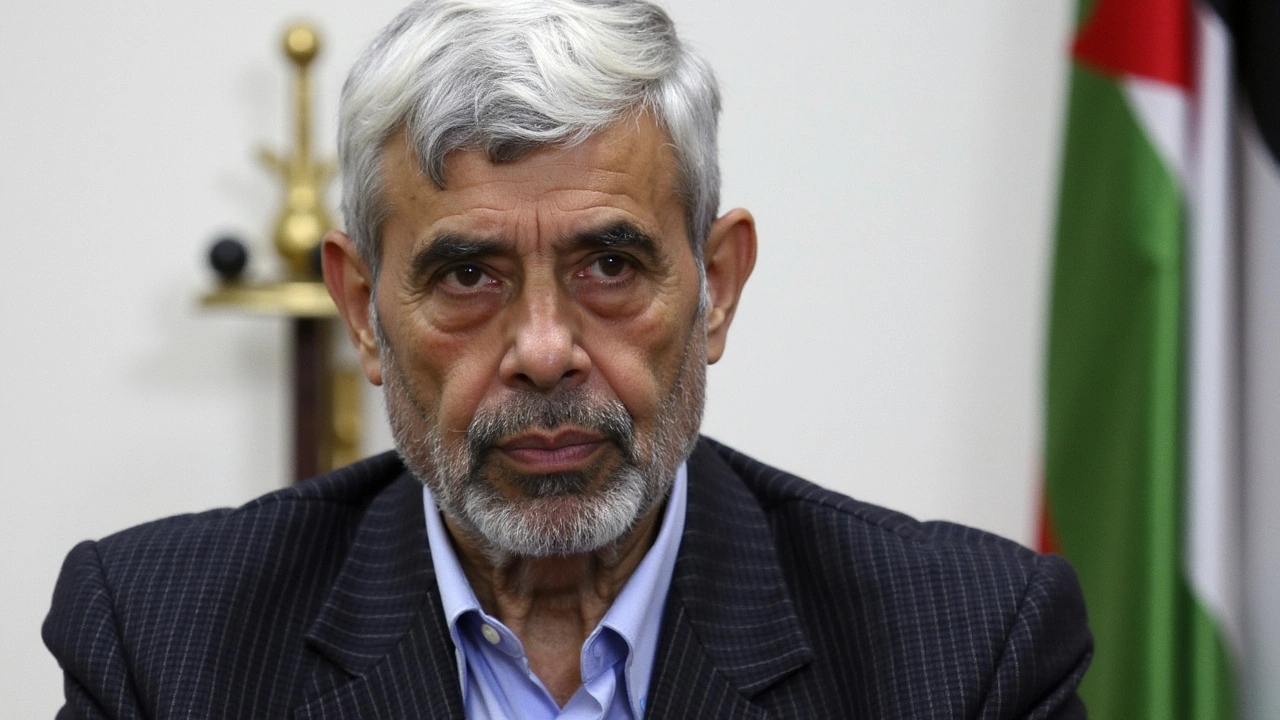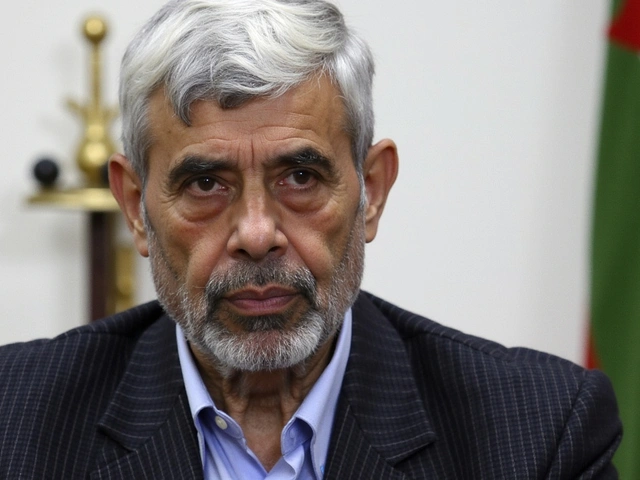Understanding the Role and Impact of Yahya Sinwar in the Israeli-Palestinian Conflict
Perhaps few leaders have embodied the complexities and the intense challenges of the Israeli-Palestinian conflict quite like Yahya Sinwar. With a life deeply intertwined with the evolution of Hamas from its grassroots beginnings to a formidable presence in Gaza, Sinwar has been both a mystery and a controversial figure. Born on October 29, 1962, his journey is marked by decades of covert operations, strategic negotiations, and a persistent pursuit of Hamas's objectives, often at an enormous cost.
Sinwar's early life in Khan Younis, a city in the southern Gaza Strip, was shaped by the turbulent socio-political environment. Rising through the ranks of Hamas, he was instrumental in establishing a robust internal security framework for the organization during the late 1980s. His approach was both coldly strategic and fiercely committed to the cause – traits that earned him both respect and fear among his peers and adversaries alike. Within Hamas, Sinwar's reputation as the 'butcher of Khan Younis' underscored his role in identifying and eliminating individuals suspected of betraying the Palestinian cause to Israel.
Imprisonment and Negotiated Freedom
Yahya Sinwar spent more than two decades incarcerated in Israeli prisons, a period that would significantly influence his leadership style and strategic decisions. His eventual release in a 2011 prisoner swap was a testament to his standing within Hamas and his perceived value to the organization. This exchange, which involved freeing over 1,000 Palestinian prisoners in return for a single Israeli soldier, highlighted the lengths to which both sides would go to maintain leverage over each other. Despite being physically separated from the frontlines, his imprisonment did not dampen his resolve; rather, it forged a more determined and calculating leader.
The Human Cost of Warfare
Throughout his leadership, Sinwar engaged in a delicate dance of aggression and diplomacy, seeking not only to maintain Hamas’s standing in Gaza but also to navigate the broader regional power dynamics. An informal understanding, often termed 'quiet for quiet,' was established between Hamas and Israel, aiming to balance hostilities with economic relief. As part of this fragile truce, Israel granted work permits to thousands of Gazans, somewhat alleviating the economic distress in the region.
However, the violent outbreak of conflict in 2021 disrupted this precarious status quo. Accusations flew as international observers questioned whether financial aids to Gaza were being understatedly diverted to support Hamas’s military ambitions, particularly their notorious tunnel networks. Sinwar stood at the center of this storm, steadfastly denying such allegations, yet his actions—or perceived inactions—proved critical in shaping international perceptions of Hamas.
October 7, 2023, and Its Aftermath
The events of October 7, 2023, marked another tragic and pivotal moment in the annals of Middle Eastern conflict. As Hamas militants launched a series of brazen assaults across the Israeli border, leaving behind a trail of devastation and abducted hostages, the world watched with bated breath. Yahya Sinwar's strategy seemingly focused on capitalizing on the chaos to extract concessions, potentially reminiscent of the very exchange that had once freed him: leverage through captive negotiations.
Though Israel and Hamas engaged in a tenuous cease-fire, allowing for a limited exchange of prisoners, the ensuing distrust and escalating aggression marked a return to violence. Notably, Sinwar's tactical gambit did not yield the intended fruits, and as the fighting resumed, his calculated approach to survival in a landscape riddled with hostility was brought to an abrupt end.

Legacy and Lessons
Yahya Sinwar's eventual demise in an Israeli airstrike epitomizes the perilous trajectory of militant leadership in conflict zones. His life and actions offer a stark reflection on the intricate web of negotiation, retribution, and identity in territories where peace often appears elusive. Sinwar's strategies, driven by deeply ingrained beliefs and the relentless pursuit of Hamas’s endeavors, have imprinted lasting lessons on both sides of the conflict. As history continues to witness the ebb and flow of Palestinian leadership, the impact of Sinwar’s extensive influence remains palpable.
The challenges of balancing military ambitions with the pressing needs of civilian populations encapsulate the broader dichotomies at play—where every decision carries profound and far-reaching consequences. Yahya Sinwar's story serves as a potent reminder of these complexities, emphasizing the human cost of protracted conflict and the difficult choices that define the Middle Eastern political landscape.



Comments
Wow, what a deep dive into Sinwar’s world. You can really feel the tangled web of politics and personal ambition. His story kinda shows how the Gaza struggle is both a human drama and a brutal chess game. Props for laying it out so clearly.
Sinwar’s tactics are nothing but a showcase of ruthless power‑play, feeding endless bloodshed. Anyone who glorifies his ‘strategic brilliance’ is ignoring the civilian suffering he helped cause.
From a geopolitical systems theory perspective, Sinwar functioned as a node amplifying asymmetrical warfare dynamics, thereby reconfiguring the conflict’s equilibrium.
Honestly, the man’s legacy is a mess 😕. Even if you call it power‑play, the human cost is just too high.
Love how the article breaks down the layers of Hamas leadership 🙌 It really helps see the bigger picture
Sinwar’s early years in Khan Younis were marked by a volatile mix of occupation and resistance.
Growing up under Israeli control, he internalized a narrative of oppression that would later drive his militancy.
By the late 1980s he had already embedded himself in the nascent Hamas network, taking on roles that blended intelligence gathering with community organizing.
His reputation as the “butcher of Khan Younis” stems not only from violent reprisals but also from a systematic effort to purge internal dissent.
This internal security apparatus, which he helped craft, mirrored the broader trend of militant groups seeking to monopolize the use of force.
The two decades he spent in Israeli prisons were far from idle; they served as an informal academy where he refined his leadership philosophy.
Fellow inmates recount that he used those years to forge alliances with other prominent figures, creating a cadre that would later assume command positions.
Upon his 2011 release, the prisoner swap itself was a political instrument that highlighted the leverage Hamas could wield on the international stage.
Sinwar’s return to Gaza coincided with a period of severe economic hardship, prompting him to balance hard‑line resistance with pragmatic governance.
He oversaw the expansion of tunnel networks, which, while militarily useful, also diverted resources that could have alleviated civilian suffering.
The delicate ‘quiet for quiet’ arrangement with Israel, though fragile, demonstrated his willingness to negotiate when strategically advantageous.
Critics argue that such negotiations were merely tactical pauses, intended to regroup and rearm.
The 2021 escalation shattered that fragile truce, plunging Gaza back into a cycle of destruction and humanitarian crisis.
Throughout these tumultuous events, Sinwar maintained a narrative that framed Hamas’s actions as defensive, a stance that resonated with a segment of the Palestinian populace.
His eventual death in an Israeli strike underscores the inherent volatility of leading a militant organization in a protracted conflict.
While it’s tempting to paint Sinwar as a lone mastermind, one must remember the broader ideological currents that shape any movement. The article does a decent job, but glosses over the regional patronage that fuels Hamas. Still, good read.
Could we also consider how external actors like Iran and Qatar influence Sinwar’s strategic options? Their financial and logistical support often goes unnoticed in mainstream narratives.
Sinwar’s rise shows how prison can become a school for leadership it’s wild how he turned a cell into a command center
The whole prisoner swap was a staged distraction orchestrated by global elites to keep the spotlight away from deeper covert operations. You’ll see the pattern repeat when the media stops digging.
In terms of insurgent organizational theory, Sinwar exemplifies the ‘strategic bureaucrat’ archetype, consolidating internal security while managing external negotiations.
Even with such heavy topics, it’s encouraging to see analysis that could guide future peace initiatives. Knowledge is the first step toward healing.
The piece does well to trace Sinwar’s personal evolution, yet it could benefit from deeper exploration of the psychosocial factors that drive individuals toward militancy. Understanding his formative experiences helps decode the motivations behind his hard‑line stance. Moreover, the article briefly mentions the “quiet for quiet” arrangement, but fails to analyze its long‑term strategic implications for both Hamas and Israel. A more nuanced discussion about the cost‑benefit calculations behind such tacit truces would enrich the narrative. Still, the contextual background provided offers readers a solid foundation to grasp the complexities at play.
The article skirts around the fact that glorifying any Hamas figure, even analytically, can legitimize terror. That line should be drawn clearer.
Really solid piece – you nailed the balance between facts and storytelling – keep it up
Nice write‑up, even if some of the dates could be double‑checked. Good effort.
Great job! 👍 This really helped me understand the layers behind the headlines.
The analysis could benefit from more primary source references however it remains a useful overview
Very insightful! 😊